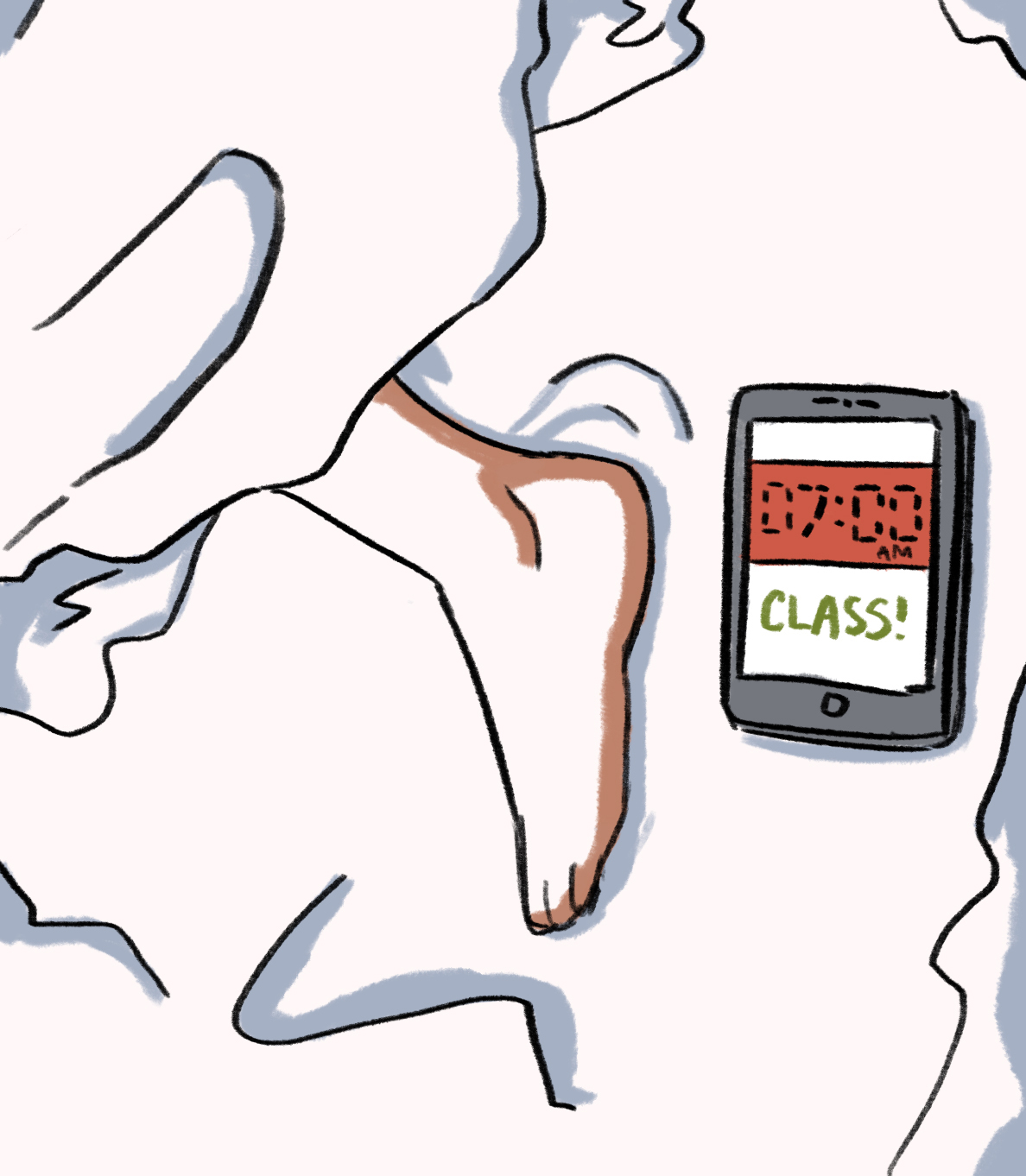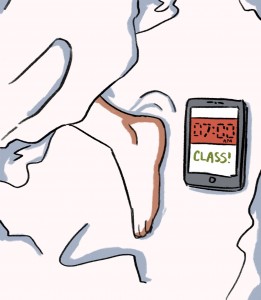7 a.m. business classes still attended despite concerns


James Moore understands the challenges of getting up for early classes—he taught Wilfrid Laurier University’s first ever 7:00 a.m. classes in the fall semester, mandatory for first-year students as a result of a double cohort situation.
Moore is an associate professor of accounting at Laurier and taught Introduction to Financial Accounting, or BU 127, in both the fall and winter terms. He sympathizes with students’ dislike of the early time.
“As someone who taught that class at that time of the day, I didn’t particularly like it very much. And I know my students didn’t like it very much either,” said Moore.
“It is an unfortunate reality these days that universities are strapped in terms of the space they have, versus the amount of students who need that space. I hope it won’t have to happen too often in the future though.”
To ensure that students would attend the early morning classes, Moore said he used surprise pop quizzes as incentive. The effort seemed to work.
“You could only write the quiz in the section you were registered in. We had to do this for population control, to ensure we had the right amount of bodies in classes. Once you put that regiment in place, students have a reason for showing up to class. That kind of forced everyone to attend class,” said Moore.
BU 127 was originally a second-year business course under the code BU 227, but following a move to better prepare students for co-op in second year the course was introduced at the 100-level.
“The decision for these changes is coming from input we have received for the need to better equip our students earlier on so that when they are applying for co-op positions in second year, employers can see they are prepared for the position,” said Kim Morouney, the associate dean of business: academic programs at Laurier.
The course was originally proposed in two time slots for additional sections: an early morning weekday time and a Saturday option.
Because of the lack of interest in the Saturday proposal, it was dropped and students then could either register for the 7:00 a.m. class or other timeslots for other sections of the course.
“We found students preferred to register in the 7:00 a.m. classes, and very few registered in the Saturday ones. Because of low numbers we decided to just drop the Saturday time slot completely,” said Morouney.
While incentives were used to promote attendance, Moore still wants students to understand offering 7:00 a.m. classes was done out of necessity.
“I hope our students understand why we had to have these classes at this time of the day, that it was essentially a space constraint. I hope they understand we take their concerns over the time of classes very seriously, but we are under constraints we must operate under.”
Morouney also pointed out that no students had come forward to complain about the early starting times of the classes. She did, however, want to commend the students on their attendance in class.
“It shows the commitment and dedication of students going and performing strongly in classes that this was done out of necessity. They buckled down and got the work done, and the fact is we have not had a lot of complaints.”

